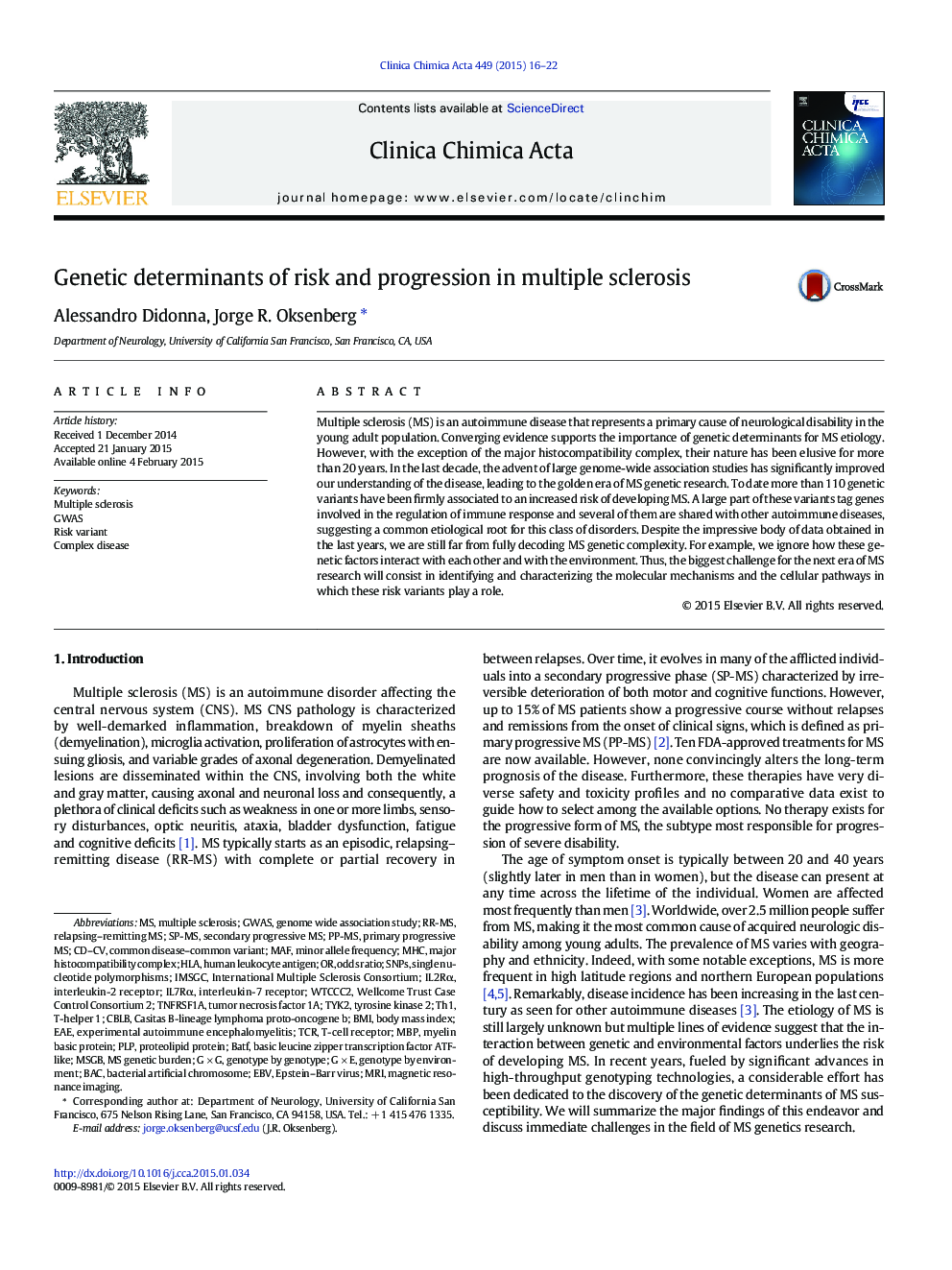| Article ID | Journal | Published Year | Pages | File Type |
|---|---|---|---|---|
| 1965254 | Clinica Chimica Acta | 2015 | 7 Pages |
•Multiple sclerosis (MS) is a complex autoimmune disorder with a genetic component.•The major histocompatibility complex (MHC) is the most prominent genetic determinant for MS.•Genome-wide association studies have substantially improved our knowledge of MS genetics.•To date, 110 risk variants have been identified outside the MHC locus.
Multiple sclerosis (MS) is an autoimmune disease that represents a primary cause of neurological disability in the young adult population. Converging evidence supports the importance of genetic determinants for MS etiology. However, with the exception of the major histocompatibility complex, their nature has been elusive for more than 20 years. In the last decade, the advent of large genome-wide association studies has significantly improved our understanding of the disease, leading to the golden era of MS genetic research. To date more than 110 genetic variants have been firmly associated to an increased risk of developing MS. A large part of these variants tag genes involved in the regulation of immune response and several of them are shared with other autoimmune diseases, suggesting a common etiological root for this class of disorders. Despite the impressive body of data obtained in the last years, we are still far from fully decoding MS genetic complexity. For example, we ignore how these genetic factors interact with each other and with the environment. Thus, the biggest challenge for the next era of MS research will consist in identifying and characterizing the molecular mechanisms and the cellular pathways in which these risk variants play a role.
